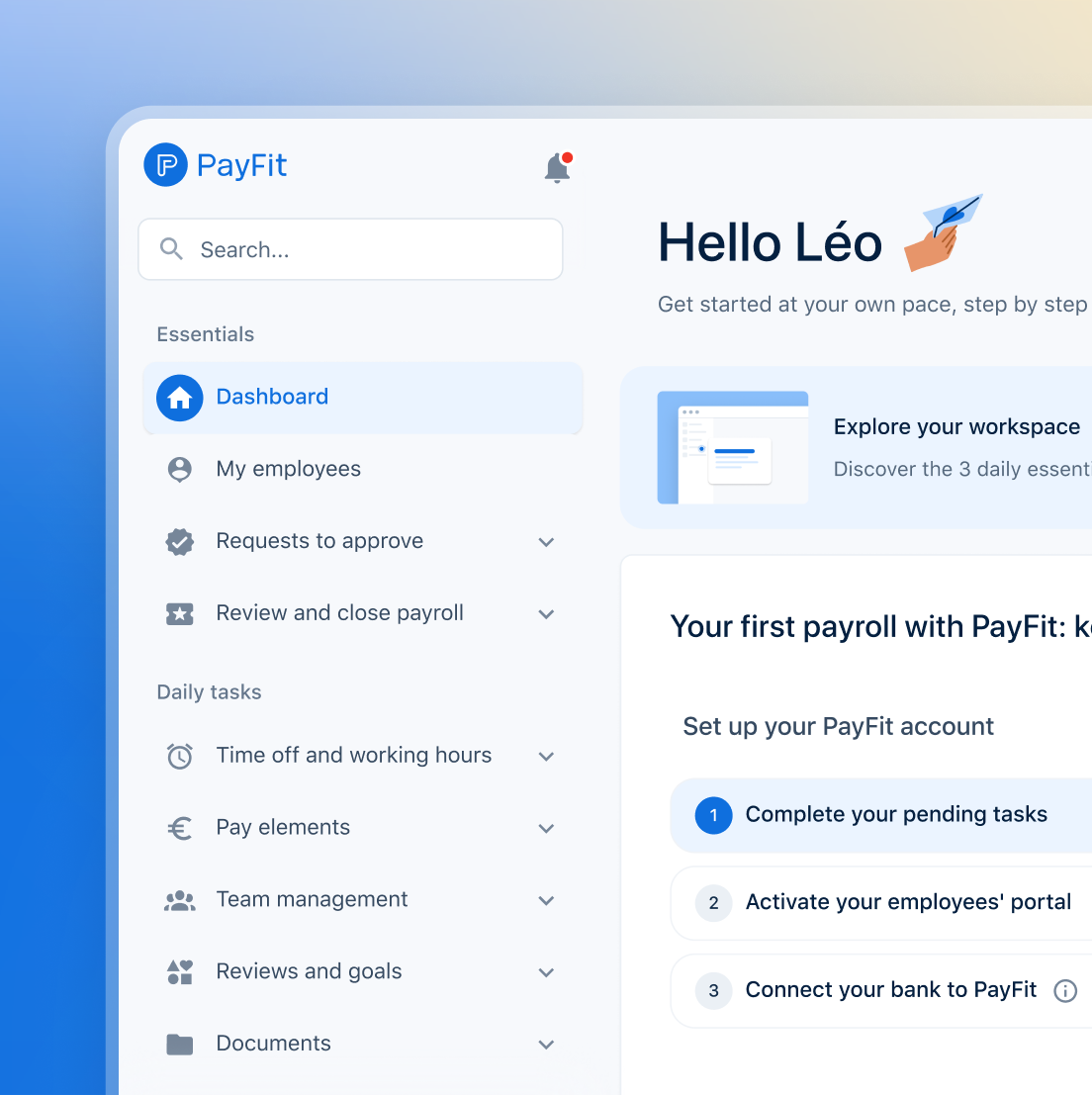✨ Health insurance, now in PayFit - learn more
💷 All the rates & thresholds you need to know for 25/26...right here
✨ The Payroll Journey: Start, Scale & Succeed Globally - learn more
✨ Health insurance, now in PayFit - learn more
💷 All the rates & thresholds you need to know for 25/26...right here
✨ The Payroll Journey: Start, Scale & Succeed Globally - learn more

This scheme has now been extended until 2025 and 2026. Find out all the latest on WFH tax relief.
The temporary exemption of Income Tax and National Insurance Contributions (NICs) for home-office expenses has been extended.
Initially scheduled to end on 5 April 2021, the measure has now been extended until the end of the 2021/22 tax year.
Employees working from home due to the COVID-19 pandemic, and employers who encourage staff to buy home-office equipment to allow them to work from home effectively, will be able to benefit.
It means that the temporary exemption of Income Tax and Class 1 NICs for employer reimbursed expenses covering home-office equipment will be extended until the end of the 2021/22 tax year.
For the exemption, the classification of home-office equipment is materials that enable employees to function effectively from their own home. It covers items such as laptops and computer equipment, desks and chairs.
It is worth noting that the items concerned must not be bought with the intention of "significant" private use.
Home-office equipment is classified as the equipment that is deemed necessary for an employee to work from home.
It covers items such as a laptop, desk, monitor, chair and other computer accessories.
Through the exemption, employees will receive the full reimbursement free from Income Tax and Class 1 NICs up until 5 April 2022.
At the beginning of the pandemic, restrictions requiring employees to work from home were designed to prevent the spread of COVID-19.
Although many of these restrictions have now been lifted, the advice remains for individuals to continue working from home if possible.
This measure has been extended to ensure that employees can continue to purchase the office equipment necessary to work from home without worrying about the consequences of Income Tax and NICs.
Employers will continue not to be required to report the reimbursed expense which would typically be liable to both Income Tax and NICs.
Employees reclaim by following their company’s expense policy.
For employers, there may be tax benefits that can be gained when submitting year-end accounts.
Any businesses unsure about the correct procedures to follow would be recommended to contact their accountant.

The information contained in this document is purely informative. It is not a substitute for legal advice from a legal professional.
PayFit does not guarantee the accuracy or completeness of this information and therefore cannot be held liable for any damages arising from your reading or use of this information. Remember to check the date of the last update.

National Insurance varies based on a number of different factors. Learn about different UK National Insurance classes, from class 1 NIC to 4, here.
Learn how directors’ National Insurance works in the UK in 2026, including rates, thresholds, calculation methods, and key differences from employees.

Learn how to submit a Full Payment Submission (FPS) to HMRC in 2026, including deadlines, payroll data requirements, RTI rules, and how to avoid penalties.

Learn what an employer reference number (ERN) is in the UK, what it looks like, where to find it, and when you need one for payroll and PAYE admin.

Understand the difference between cumulative & non-cumulative tax codes. Ensure your UK payroll is accurate & HMRC compliant for 2026 & 2026/27.

Understand the PAYE reference number (ERN), learn where to find it, how to register as an employer with HMRC, and why it matters for payroll compliance.

See what's new in PayFit
New features to save you time and give you back control. Watch now to see what's possible